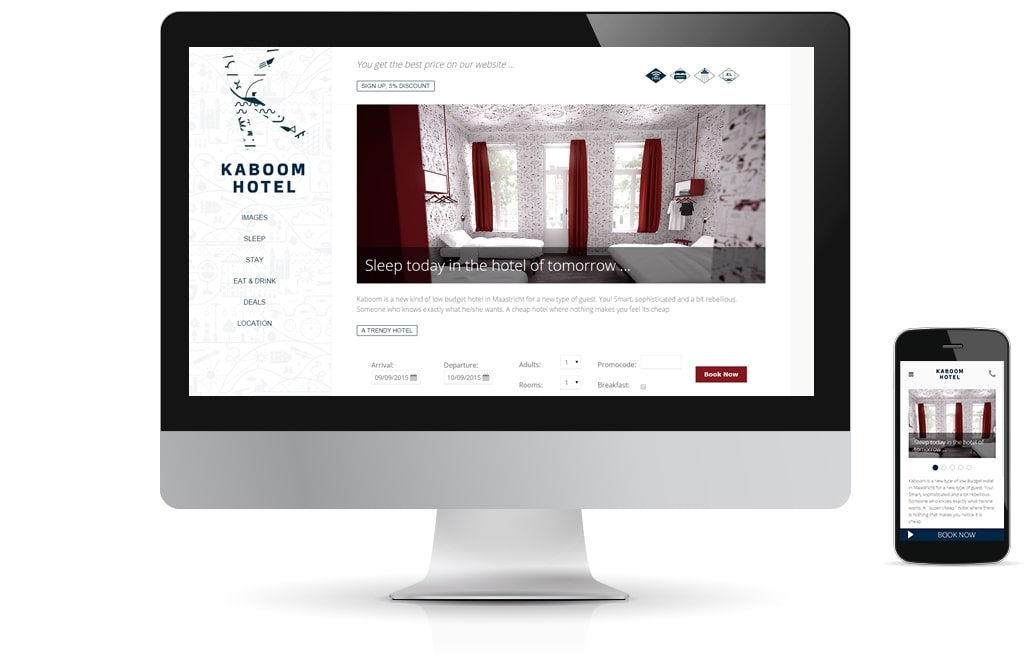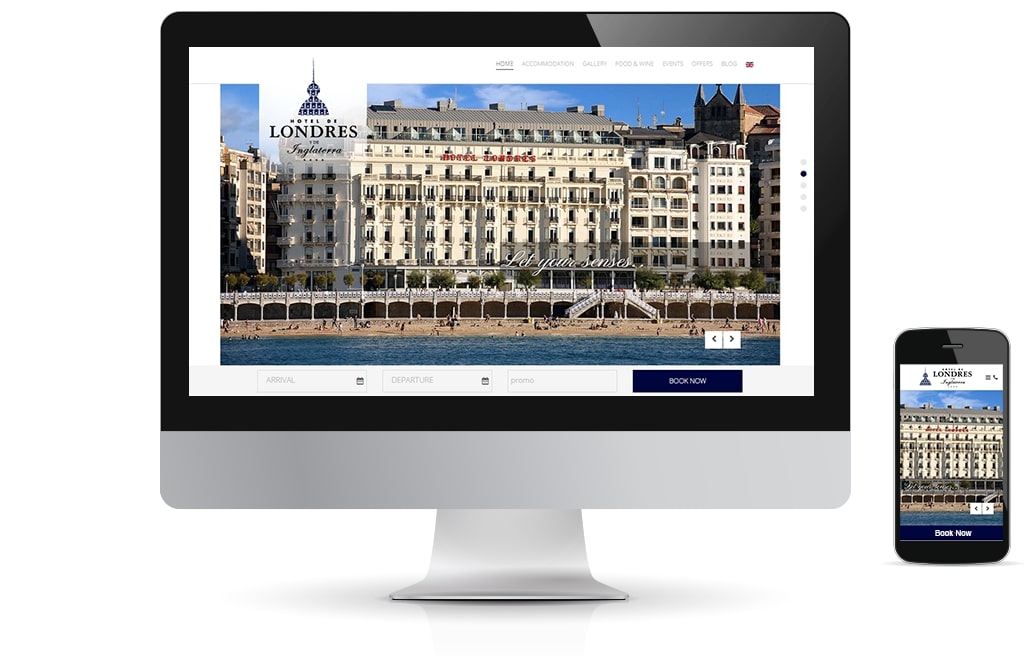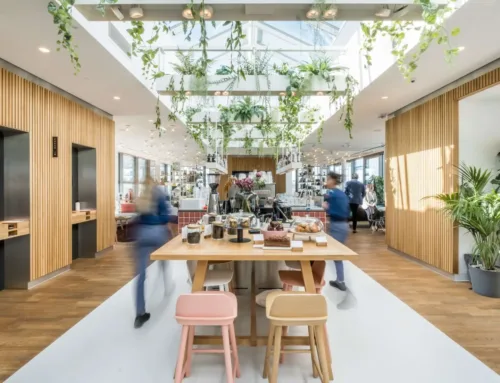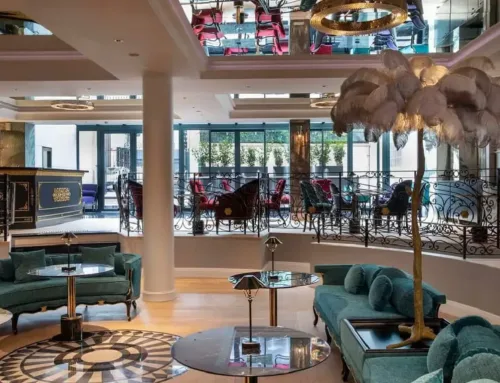Hotel Marketing Plan: How to Drive Direct Sales
It is a balancing act for hoteliers between selling rooms through their own direct channels and using the help of third party websites, wholesalers and online travel agents (OTA’s). Naturally, the best way would be to do everything ourselves. According to the motto ‘if you want something to be done good, do it yourself’. But as an independent hotel will it be enough to rely solely on your own revenue management and hotel marketing strategy. In practice however we often reach out for help and alternative distribution channels.
On one side we want to sell our rooms to a wide audience, so using an OTA (like Bookings.com or Expedia) seems the best idea, as today they dominate the online travel market and have access to a large clientele, which we hope to attract to our property with their ‘’billboard advertising’’. It is a great way to offload unsold inventory.
Fair enough.
Making reservations at hotels via online travel agencies has become insanely popular nowadays. Unfortunately over the last years consumers have developed a behavior they don’t even consider booking on a hotel’s website. Many have become loyal to the OTA, thinking they offer better rates than on the hotel’s own brand.com website.
So how could hoteliers not want (or have) to cooperate with the OTA’s?
But then there is the other side… Do we really want that ‘help’? Do we want to pay high OTA commissions or give steep wholesaler discounts, and slowly but surely slide into a position of being (overly) dependent on the conditions the OTA’s dictate us (yes they try to!)?
With the elevated fees hotels have to pay to 3rd party websites for selling their OWN rooms, they are left with substantially reduced profit margins. On the top of that, often hotels are forced to sign agreements with OTA’s stating that they can’t offer lower prices on their hotel website directly (under any circumstance). Especially Independent hotels, which don’t always dispose of the same marketing budgets as the (larger) hotel chains, are tempted to dive into a state of dependency of the OTA’s which are luring them with their large selling potential.
However… There is hope!
The winds have been changing lately and the ‘trend’ is shifting back to divert the business from OTA’s directly to the own hotel website with the aim to win direct clients.
Travelers are becoming more aware (also thanks to the ‘buzz’ created by the marketing efforts of the large hotel chains) that direct bookings can offer considerable advantages. Travelers start searching for lower room rates and discounts that are not always available through the OTA’s. The game of driving the bookings away from the OTA’s by converting more on your website has started. The big chains have started a determined counter-offensive against the OTA, to ensure they get their fair part of the distribution pie.
Hilton launched a program called ‘Stop Clicking Around’. IHG calls it ‘Your Rate by IHG Rewards’ and claims to have increased their digital revenues by 7% and the mobile revenues by 32% as a result. Marriott, Starwood, Choice and Best Western have also entered the war against the OTA with a best rate, or rather better rate, guarantee program for their loyal members.
They are fighting to take what’s theirs … Are you on the ball with this at your hotel?
It’s time to wake up and to react now using the momentum to your advantage!
In this article you will find some insights which let you reflect on this subject and some ideas you could incorporate into your sales and marketing strategies.
Hotel Marketing Plan & Strategy – Part 1
We have put together a complete hotel internet marketing plan for independent hotels on how to drive direct sales. And take note, these marketing techniques, tips, ideas and best practices can be implemented in any hotel!
We will be covering the following areas of online marketing for hotels:
- Hotel Website best practices
- SEO = Search Engine Optimization
- Trademark Protection
- SEM = Search Engine Marketing
- Meta-search Marketing
- Discounts & Loyalty Offers
- Reputation Management
- Booking Engine requirements
- Conversion Stimulation
Great Hotel Website Design is the First Step to Success
First of all, you have to implement one crucial aspect into your thinking and acting: Your Hotel website is not only your source of pride and your ‘business card’ but also the most important tool to generate direct bookings. Your own website is your best friend and you should treat it with care and attention to detail!
Your website needs to have a nice and original design, a style matching the character and DNA of your hotel, and include a user-friendly booking engine, and be well optimized to attract natural search engine results.
Unfortunately many hotel websites are developed without even the basic concern for SEO and proper keyword research. This can have negative repercussions on the number of visitors and at the same time on the bookings made via the website (or in that case, the bookings which are not made!).
Ergo: Step one: Have an amazing website and step two: Make sure travelers can find your website!
So what should a great website look like and what should it feature in order to improve your rankings?
- The design should be impressive, clean, functional and easy to navigate. A unique user-friendly website that makes a clear brand statement, differentiating your hotel from others.
- Explain in great detail everything about your hotel, its services, facilities and outlets. Answer any question a potential guest might have before booking your hotel, or information that can be helpful to decide to stay with you. Tip: ask your front desk and reservation staff to list all the questions they get on a daily basis, i.e. which credit cards you accept.
- Use as many pictures as possible, and include a great video of your hotel and destination. We recommend at least 100 in total, and a minimum of 8 images per room type.
- Use keyword research to determine which consumer searches you should target and develop an elaborate landing page strategy with short-, mid- and long-tail keywords.
- Build well optimized themed landing pages with special offers and local experiences.
- Include guest reviews to show what people who have already stayed with you are saying.
- Implement a streamlined hotel booking engine with a simplified reservation process.
- Mobile phone friendly: Today potential guests are typically on-the-go and more and more people book via the mobile phone. You should develop and optimize the mobile version of your hotel website and especially your booking engine. The content should focus on highlighting the most important information to facilitate the travel planning process and generate a booking. Special offers and last-minute rates should be highlighted and displayed as an eye catcher. They should be easily bookmarked for transition to desktop.
- It is crucial that your website will load quickly on both, the desktop and mobile devices. You can use the Google Page-Speed Insights (linked), a mix of tools and analytics that allow you to understand how well your website is loading and at the same time to correct problems uncovered in the analytics.
Hotels should not be shy with investment in websites and online marketing. At the end getting something cheap can turn out quite expensive as you are missing on un-captured business, needing more indirect bookings and paying more commission to OTAs.
I highly recommend to work with a company that has experience in the travel e-commerce industry and has made several successful hotel websites (let them demonstrate how much direct sales these websites are generating). Also make sure they use an open source CMS (content management system) like WordPress, Joomla or Drupal so you don’t depend on them, and really own and control your website … (you would not build a hotel either where the construction company owns the foundation and support pillars would you?)
Note: most people know this already, but better be safe than sorry, use html and not flash, search engines cannot not read flash, hence ranking a flash website is kind of difficult …
SEO The basis to being found on the world wide web
SEO or search engine optimization can be applied by even the smallest of Independent Hotels to ensure a consistent, professional presence in the Search Engine Result Pages, SERP’s, by applying some basic SEO elements and strategies.
The most important to keep in mind when thinking about SEO is: Change is constant!
Major search engines (like Google) are changing their algorithms more than 500 times a year, plus introducing new features and functionality. All the changes impact how search results appear on SERP. You, dear hoteliers must adopt a proactive approach to content creation and SEO.
Find here some crucial SEO strategies:
Content is King!
When it comes to high rankings. You need truly engaging and hotel specific content to drive conversions! Successful hotel websites not only inform, but inspire!
What you want is that potential customers spend longer times on your pages and that they visit more pages of your website. So you will need uniquely engaging content, to achieve this. Also you want to minimize the bounce rate (people leaving your website from the landing page without browsing any further). Those metrics send positive signals to the search engines, which utilize the information in determining where a page ranks on the SERP .
Repeating myself again to highlight the importance of mobile search which nowadays takes up a greater share of overall search activity. You need to recognize that your mobile website interface is more important than ever. Google has recognized this and penalizes search rankings for sites that have weak mobile capabilities. Make sure your content is mobile friendly! Check your property’s website on your own mobile device. How does your property look? Is it easy to make a booking? You can use Quirktools´s screenfly to check different screen-sizes and devices.
Additionally, of course, keep an eye on the behavior of mobile visitors (their level of engagement, where they stand within the purchase funnel etc.) and adjust continuously.
Be aware of the traffic! Check your ranking visibility on regular basis.
See how the content impacts search engines and end consumers. Get knowledge of user engagement insights and organic traffic. Be proactive in tracking via analytics tools:
- monitoring of keyword ranking visibility on an analytics platform (i.e. Google Analytics)
- using Google Webmaster Tools and Bing Search Console for technical SEO spot checks and assessments
Be prepared for changes!
Act quick and effective as a response to shifts in search engine algorithms, user search demands and the competitive landscape. Regular reporting, data-gathering and action steps on ongoing optimization endeavors are the keys. Be proactive!
Get help from the professionals.
Don’t be shy in using technology. Reach out for leading search visibility platforms. As mentioned above, a strong content management system / CMS (ideally open-source) is crucial for real-time content and SEO updates.
A (good) CMS should offer the ability to make updates (easy and in real-time) to on-page content, metadata, images, promotional tiles and other critical components. Train your staff on the usage of the CMS.
Control your website and identify high-performing pages, search visibility opportunities, recent successes, top engagement and traffic sources as well as performance analysis against a comp-set.
You need a uniform, streamlined and optimized local search presence. Search engines place greater trust in uniform listings across well-established portals and as a result they are more likely to prominently position your hotel on the SERP. Therefore: Reduce duplicate listings within directories, include quick verification and routine maintenance of local profiles across a variety of listing platforms (like Google My Business, Yelp, Bing, CitySearch, Superpages, Yellow Pages etc.).
Use links to build credibility!
One of the most important factors in ranking in the SERP’s is the way in which links interact with your website!
Basically speaking, search engines learn about websites and/ or specific pages by analyzing links from other sites that lead to them (that domain). Links from trustworthy and high-value sources (like .edu, .gov) signalize to the search engine that the linked page / site is also trustworthy and therefore worth of a prominent placing in search results. You should monitor and regularly audit all inbound link activities and opportunities to gain credibility from links and avoid punishment for bad (spammy) links. Link management strategy is the magic word here!
Be more than ‘just a hotel website’ There it is again – our friend ‘content’! Provide the travel planner with engaging and informative content! Avoid generic and boring descriptions. Entice the visitor. Give tips to the local area, guide about nearby attractions, tell about activities, add event calendars and interactive maps and share other interesting local knowledge. Show that you are the number one of the destination!
Don’t exclude other digital marketing possibilities, like paid search, banner advertising, email marketing, reservation retargeting etc. and turn you hotel website in a high revenue generator.
SEO elements
Now, let’s go a bit into details on various SEO elements.
Title tags
Title tags are a very important element. Not only does the title appear in the clickable portion of your listing in the organic search engine results, also it improves the rankings if you place your targeted key in the title. Titles should be clear and in line with the page’s actual content.
Every title tag should include those 3 elements to properly represent your pages and help with rankings:
- Title of the page
- Appropriate accompanying keywords
- Name of your hotel / brand
Note: you can only target 2 or 3 keywords per page to ensure maximum result. More will dilute your potential to rank. So you will need several landing pages to target different keyword combinations.
Use Google Keyword Planner to identify the relevant keywords for your hotel and target markets. You should look beyond the obvious short tail keywords, and also include landing pages with more fragmented mid- and long-tail keyword search combinations to penetrate the lower hanging fruits of online traffic. This will help your overall SEO strategy gain more power.
Meta descriptions
They provide a short summary of the page inviting to visit your link. They are direct ranking factors and can influence other aspects like the click-through rate (how many users your page gets) and the average time the user spends on the site (both of which are direct ranking factors).
Meta tag descriptions in the SERP’s can give valuable information and influence undecided users. A good meta tag will bring more traffic to your website and generate more direct bookings. Whenever a guest reaches for a keyword you include in your meta description, those terms will be balded in the test results displayed to him.
You should mention the USP’s – something that differentiates your hotel from your competitors and also include a call to action for a guest to book with you straight away. Make sure you send the right message to target the right audience.
Note: the keywords must correspond to those in the Title Tag.
Headers
Create and tag headers and sub-headers in the content of your page. This is a very important on page element for targeting keywords! Many leisure travelers use their smartphones to get travel inspirations in spare moments, with the headers (caption titles) you separate your text which captures the attention of the users and makes it easy to navigate.
Using these kind of caption titles makes it simple to understand what your page is about. Recognizing the topic it will improve your usability statistics, which in turn will improve the SEO score of your landing pages. Use a clear structure with paragraphs broken down into subdivisions. It will make your website user-friendly.
Content
I repeat: The Google Search Algorithms are very sophisticated, which means you need an amazing content! The most important factors for your content are: Quality (engaging stories), Readability (free of spelling and grammar errors, easy to navigate and scannable – i.e. short paragraphs and bullet points), Freshness (updated information, correct pricing), Usability (functional links, easy to navigate with a quick possibility to find what the user is looking for, easy to book directly).
Ergo: Pay attention to detail! Make sure your headers are tagged appropriately, your website is easy to scan and read and publish fresh quality content to engage readers. And don’t forget: Content is King when it comes to good rankings!
Rich Snippets
They provide an instant information about your hotel through reviews and ratings (a star rating displayed below your Title Tag, a review written by a customer which replaces the meta description, specific business information like address or opening hours). Rich Snippets can instantly boost the click ratings. A very useful SEO tactic in your arsenal.
To display a rating / review Rich Snippet you will need a developer to ‘mark up’ the corresponding text on your website using the standards found on Schema.org. You could also use any other type of Rich Snippets like Events and Product/ Price Markup. The information about an upcoming event can be displayed just below the Title Tag and Meta Description. Hotels can take advantage of concerts, happenings, special theme nights, festivals etc. by listing them as a Rich Snippet. TripAdvisor relies mainly on the use of Product / Price Markup Snippets. As they occupy the same space as rating / review Snippets, you have to make a choice, what you would prefer to display in your site’s Rich Snippet.

Rich Snippets don’t affect directly your search rankings but they have an influence on the rate of users clicking on your listings in the search results, as well as on the bounce rate and the average session duration. These snippets don’t only draw the eyes of users to your listings but they also give them an instant information and an additional reason to click through your website.
As I mentioned above: Linking is a very popular and effective SEO tactic! There are two types of links – internal and external links.
- Internal links point to other pages on your website. They help search engine spiders to find all the pages on your website (in order to rank high on SERPs, the search engines must first know that the pages exist) and they make it easier for the potential guest to find what they need (i.e. a link to the reservation menu for a direct booking)
- External links are either Inbound (lead users to your page from other pages) or Outbound (lead users from your page to other pages). Google also looks for websites to link out to other relevant websites, that shows that a website participates in the community (and is not interpreted as spammy). Reaching out to other websites for linking them to yours is an important and simple tactic to generate traffic. Think of travel bloggers and hotel listing websites.
Protect What is Yours
The most basic and simple step is to claim what is rightfully yours. And that is your name, your trademark is yours. Protect it!
Many hotels don’t, and therefor basically allow OTA to bid on their trademark in search engines, and steal their direct business. That is just damn stupid in my book. Why would you let the OTA take the traffic of people who are specifically looking for your hotel.
You can easily control your distribution cost and direct production by implementing Brand Protection as part of your online marketing strategy. Meaning that you should submit the hotel’s Trademark to Google (and other search engines) to block Ads with the hotel name / brand by others.
Why? Be aware that when working with OTAs, those 3rd party websites also advertise on your hotel brand name (on brand keywords) on Google, Yahoo and Bing.
How? When a consumer is doing a search for a particular hotel (yours in this case) on Google the OTA’s are bidding via Google Adwords on your hotel name and are diverting potential direct bookers to their 3rd party travel agency website. This Ad appears on the top of the listings in Google and the unaware customer clicks on it first and lands on his page (not on yours!).
Through advertising on the hotel name in the search engines, the OTA intent to convert this direct client into their own client – for your hotel or even worse re-direct them to yet another hotel! This phenomenon is lately very questioned and referred to as ‘SEM hijacking’ or ‘brand keyword robbery’. The OTA’s should focus on generating extra bookings and incremental revenue, but unfortunately they don’t show much consideration to that promise, especially when it comes to independent hotels.
Yep, this is what we think of Hotel Brand Hijacking by OTA’s
So what is the solution?
How do you protect your hotel brand?
- You need to have your brand officially registered. You can register your brand locally or on European level. The European level registration is of course much more effective. An online application costs € 850 for a trade mark.
- Once you have your trademark registered you have to submit it to Google. The following link will be helpful for you: Trademark Complaint Form from Google
- Once this is accepted you’ll have to do a follow up with Google (by email) to make sure all advertisers accomplish the policy. Remember, you’ll not be able to remove all advertising on you hotel brand name, just those showing your hotel brand name in the ad text (URL is excluded)
That’s right it should be your own website on top, always!
The aim should be to create a true win-win situation, and not one as the OTA smartly try to define it in their sales pitch to hoteliers. Sure, you need their help to reach a larger audience of potential guests but also they need you (probably even more) because at the end it’s you who have the rooms!…and with that the power of negotiation.
Ok guys, enough for today. This was part 1 of our Hotel Internet Marketing plan for independent hotels. Next week we will continue with more hotel online marketing tips and best practices we use at Xotels.
Hope you enjoyed the read. Do not miss our part 2 …
Share This Story, Choose Your Platform!

About the Author:
As CEO and Founder of XOTELS, Patrick Landman has made it his mission to turn hotels and resorts into local market leaders. XOTELS´ diverse expertise and deep-knowledge across revenue management consulting, hotel management, and hotel consulting, enables us to drive results for independent boutique hotels, luxury resorts, and innovative lodging concepts. Below you will find opinion articles written by Patrick Landman.














